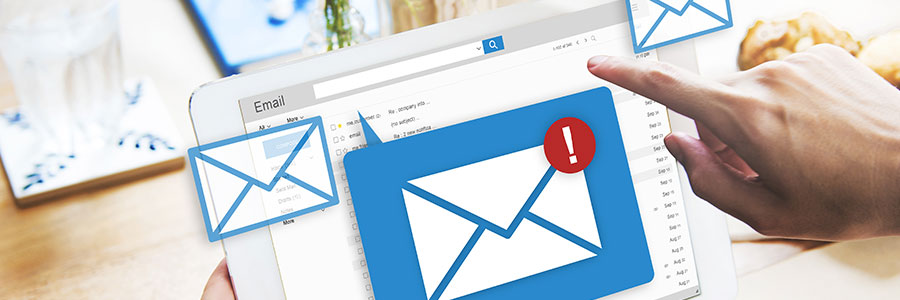Everyone wishes there were more minutes in a day. Between repetitive emails and seemingly endless meetings, it’s hard to find time for important tasks. Thanks to the increasing affordability of enterprise-level IT however, SMBs can start getting at least half of those problems under control with email automation.
What is email automation?
Usually included in customer relationship management (CRM) software, email automation centers around the idea of combining your business data into emails to customers and prospects. This allows you to draft templates with placeholders for names, addresses, and other variables that the platform will match with individuals from your email list.
Even better however, is personalizing how and when your emails go out to clients. Automatically inserting customer data into an email is great, but it still requires that you draft the content that surrounds it and hit Send. Email automation grants you the ability to create templated emails that are automatically merged with client data and sent when certain conditions are met.
Examples of email automation
To really get an idea of how valuable this solution is, it’s important to see what it looks like in action. Say you own an eCommerce site that sells complementary goods, like golf clubs and golf balls. You could create a campaign wherein anytime someone buys a set of clubs, pre-written emails automatically go out one month later on how high-quality golf balls improve your handicap.
You’re not limited to two-step workflows either. Take a look at this example:
- Step 1: Send a personalized email with a special offer on golf balls for existing customers.
- Step 2: Send a follow-up based on how customers interacted with the offer email:
- If a customer cashed in the offer, send a thank you email.
- Step 3: Follow it up with a similar offer three months later.
- If a customer visited the promo page but didn’t convert, send a promo email for another type of product, like golf bags.
- Step 3: Follow it up with either a thank you email or another promo for golf clothes.
- If a customer didn’t even open the email, send a survey email asking about their interests.
- Step 3: Follow it up with email campaigns based on what they selected.
- If a customer cashed in the offer, send a thank you email.
Email automation means there’s no need to micromanage your customer relationships. As long as you define the path to purchase for high-volume products, you can program workflows to nurture customers and prospects automatically.
For as little as a couple hundred bucks a month, your customer outreach campaigns can compete on the same level as your corporate counterparts with little effort from your team. Add in an expert IT provider and you have the ability to blow the competition out of the water. To learn more, contact us today!

